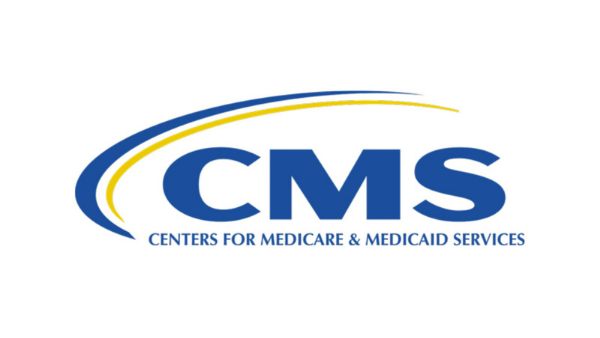Posts Tagged ‘medical malpractice claims’
How to Save Millions on a CMS Immediate Jeopardy Enforcement
Tuesday, March 9th, 2021
Senior living providers face unrelenting challenges—a burdensome regulatory environment, financial sustainability, COVID-19 preparedness, quality and safety performance, complex legal issues, and a workforce that is more stressed and vulnerable than ever before. Read on to learn how a deep dive into the medical records may have saved this LTC facility millions in CMS fines.
CMS Compliance
The Centers for Medicare and Medicaid Services (CMS) has indicated that now more than ever, they are taking necessary steps to ensure long-term care facilities are adequately meeting the needs of their residents through ongoing, focused site surveys. The stated purpose of a CMS survey of a skilled nursing facility (SNF) is to ensure that the SNF is in substantial compliance with Medicare’s Requirements of Participation. This is to presumably increase the likelihood of improved resident outcomes and quality of life. Substantial compliance is assessed when there are no conditions present that could cause more than minimal harm or actual harm to any resident.
CMS Immediate Jeopardy
When non-compliance exists, CMS has the authority to impose one or several enforcement remedies. These may include a Civil Money Penalty (CMP); denial of payment for new admissions, a targeted plan of correction, and/or termination from Medicare and Medicaid programs. According to CMS Memo #17-37-NH on CMPs, the remedies are “intended to promote a swift return to substantial compliance for a sustained period of time, preventing future non-compliance.”
When CMS deems a CMP is appropriate, they make a determination between a Per Day and Per Instance assessment. Per Day CMP is used to address non-compliance when a resident suffers actual serious harm at the immediate jeopardy (IJ) level, a resident was abused, or the facility had persistent deficient practices violating federal regulations. CMP assessments are not only impacted by the type of non-compliance. Factors such as the date the facility was determined to be out of compliance also affect assessments. Immediate jeopardy assessments often involve CMPs above 1 million dollars. When assessed, they significantly impact the already limited resources a long-term care facility needs to deliver quality resident care.
It goes without saying that long-term care facilities should be held accountable for providing substandard care to their residents. It is arguable, though, that the CMS survey process itself needs improvement. In our experience, however, many times, issues arise when the medical record documentation falls short and fails to substantiate the comprehensive and compassionate care rendered by the nursing home staff. In these instances, facilities are not only at risk for substantial sanctions from CMS but significant liability claims as well.
Med Law Case Study
We present a case in which our client, a mid-sized regional skilled nursing facility, faced an Immediate Jeopardy assessment by CMS related to wound care provided to one of their long-term residents over a ten-month period. Defense counsel for the SNF reached out to Med Law when the survey team was onsite, requesting an emergency medical record review to help defend the assessment and mitigate damages. Working alongside the Director of Informatics and VP of Clinical Operations for the facility, the Med Law team had remote access to the facility’s electronic medical record (EMR) within 2 hours. Over the next few days, Med Law nurse consultants diligently reviewed clinical documentation surrounding the resident’s 13 wounds, working with nursing administration to fill in the noteworthy documentation gaps.
Within days of initiating the review, Med Law consultants determined:
- The facility properly and thoroughly assessed and reassessed the resident’s risk of skin breakdown with rare exceptions.
- A comprehensive, person-centered care plan to address the resident’s risk for skin breakdown and actual pressure injuries was developed. Care plan updates and revisions were ongoing.
- Supportive interventions to promote healing of the resident’s existing wounds and prevent new wounds were noted throughout the record.
- Wound consultant notes, found outside the EMR, provided supportive evidence the resident’s physicians were closely monitoring his wounds and directing wound care.
Review Results
As a result of the collaborative efforts between the Med Law consultants and facility nursing administration, the teams identified significant documentation that supported proper care and treatment of the resident’s wounds for most of the original period of non-compliance. Unfortunately, issues remained regarding a lack of documentation to substantiate provider notification of symptoms consistent with wound infection for six days. The resident’s physician became aware of the wound changes during a follow-up wound evaluation. These findings were submitted to the CMS survey team for consideration in the Immediate Jeopardy assessment. The final calculation of CMPs was pending at the time of this post; however, given the duration of the initial period of non-compliance, the review findings likely saved the facility hundreds, if not millions of dollars in penalties.
Strong record-keeping equals a strong defense in regulatory and medical-legal matters. Accurate and clear documentation in the medical record supports the staff’s attempts to provide comprehensive, person-centered care to patients and residents. Given the intense regulatory oversight and volatile nature of litigation in the senior-care environment, it’s more important than ever that staff understand the importance of memorializing resident assessments and the overall care rendered in the medical records.
How Med Law Advisory Partners Can Help
Med Law Advisory Partners can help LTC organizations implement action plans to help mitigate risk for and effectively respond to regulatory assessments and liability claims. Our LTC Defense Preparedness Program identifies weaknesses in record-keeping systems and outlines ways to improve processes and defend standard of care claims.
If you would like more information on how our team can help your organization, we’d love to hear from you. Contact us to schedule a conversation.
 Founded by Alicia Davis, RN, LNCC, Med Law Advisory Partners (and former ALN Consulting) provides resources and expertise in the areas of safe opioid prescribing, medical malpractice, and post-acute care litigation, including COVID-19 claims. Alicia and her team have worked with government entities, healthcare systems, insurers, and senior-living operators for nearly 20 years, helping mitigate risk and manage medical-legal and healthcare fraud claims.
Founded by Alicia Davis, RN, LNCC, Med Law Advisory Partners (and former ALN Consulting) provides resources and expertise in the areas of safe opioid prescribing, medical malpractice, and post-acute care litigation, including COVID-19 claims. Alicia and her team have worked with government entities, healthcare systems, insurers, and senior-living operators for nearly 20 years, helping mitigate risk and manage medical-legal and healthcare fraud claims.
Originally published March 8, 2021.
Fighting Fire with Fire: How a Legal Nurse Consultant Can Help Defend Medical Malpractice Claims
Thursday, February 4th, 2016
Medical malpractice claims in 2015 were on the rise for the second year in a row. In 2014, $3.8 billion in payouts were awarded to claimants and plaintiffs alleging malpractice, according to Diederich Healthcare. Malpractice claims exceeded $713 million for New York State alone. Altogether, the quantity of claims increased 4.4 percent compared to 2013 — the second increase in two years.
Many malpractice insurers are hemorrhaging money as a result of these claims. One method they can try to reduce the size of settlements is to consult a legal nurse to analyze the data and determine whether the damages are to the extent the claimant alleges.
A growing numbers of plaintiffs are already using this same tact to increase the size of their claims. Legal nurse consultants were able to analyze data and case histories in order to bolster the claimant’s argument for a larger settlement. Without a legal nurse consultant of their own, many defense attorneys representing insurance carriers were unable to counter the compelling evidence set forth by the plaintiff.
Now, insurance carriers are recognizing the need for a legal nurse consultant in order to ensure a more accurate and complete analysis of the case’s circumstances. Defense attorneys who do not keep pace with this trend will soon find themselves outmatched in a profession that concerns itself exclusively with persuasive matters of fact.
Legal Nurse Consultants Make Worthy Opposition
In the legal consulting world, each side does their best to examine the case in an objective manner while still singling out the details that can benefit the client they are helping represent. A single expert witness for the plaintiff can clinch the outcome in their favor.
Meghan D’Angelo was one such clincher. She was once called in to provide an objective confirmation on whether or not a hospital followed protocol. Her plaintiff, who was tragically deceased, had died as a result of complications from falling out of bed. The plaintiff’s family and representing lawyer simply wanted to know if the hospital had breached protocol by allowing the patient’s bed rails to be left down.
What she found went far deeper than bed rails. As D’Angelo analyzed the case report and medical records, she discovered that the patient was given the wrong dose of a medication that had sedating side effects — twice. She also noticed that the nursing staff did not exercise their full diligence when performing the patient’s assessment.
This discovery transformed D’Angelo’s role from a one-note confirmation to a full-blown consultant who worked with the case for two months. “We’re looking from a high level down to a detailed level,” D’Angelo told the Daily Record. “I’ll say, ‘Look, let’s not only focus on what happened at the bedside, but also, were the hospital policies and procedures followed?’”
Countering Knowledge with Knowledge
No one can say for certain, but it is likely that the defense attorney was dumbfounded upon D’Angelo’s discovery. Without a legal nurse consultant of their own, they could have easily been blindsided by the information and not in a strong enough position to dispute the findings.
Having a legal nurse at your side allows your case to respond in a tit-for-tat manner with the plaintiff’s own expert consultant. Many nuances and complex details surrounding patient medical records could make the typical paralegal’s head spin. A legal nurse, though, can respond in kind and work to bring a full spectrum of opinions and findings to the defense.
In fact, a legal nurse consultant can come into play countless times during a discovery and case-building period. The American Association of Legal Nurse Consultants outlines an entire process that can be extremely difficult for someone without a medical background to handle.
Even if your case is not going to litigation or your claimant has not consulted a legal nurse of their own, relying on a legal nurse could potentially save insurers thousands or more. Many insurers are already recommending that attorneys hire legal nurse consultants in order to view the claim from a professional standpoint.
To make sure that your legal team does not get out of their depth and can keep settlements as low as possible, strongly consider the increasingly-common recommendation of insurers and hire a legal nurse to bolster your case. Your client just might not be able to afford for you not to.